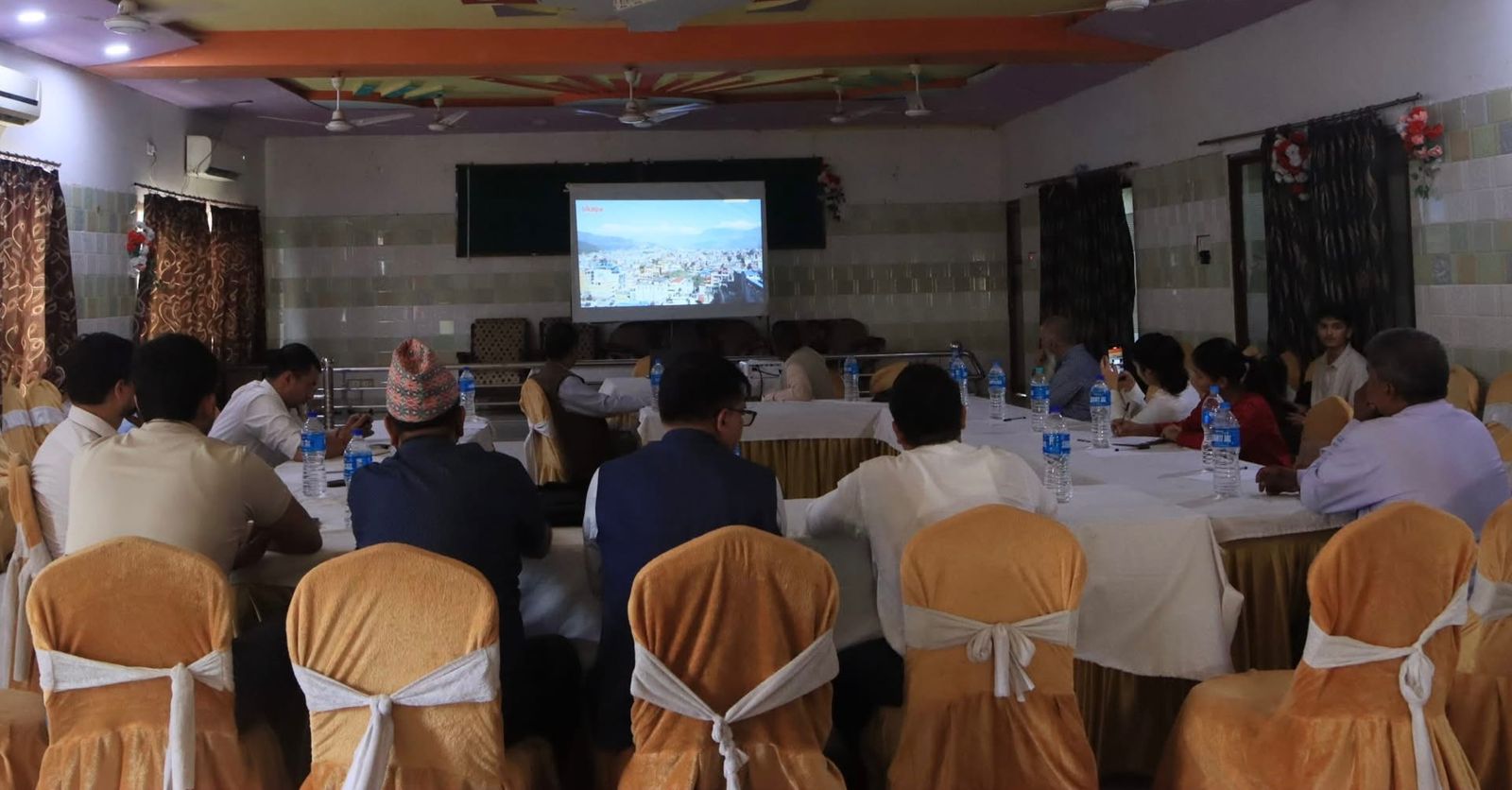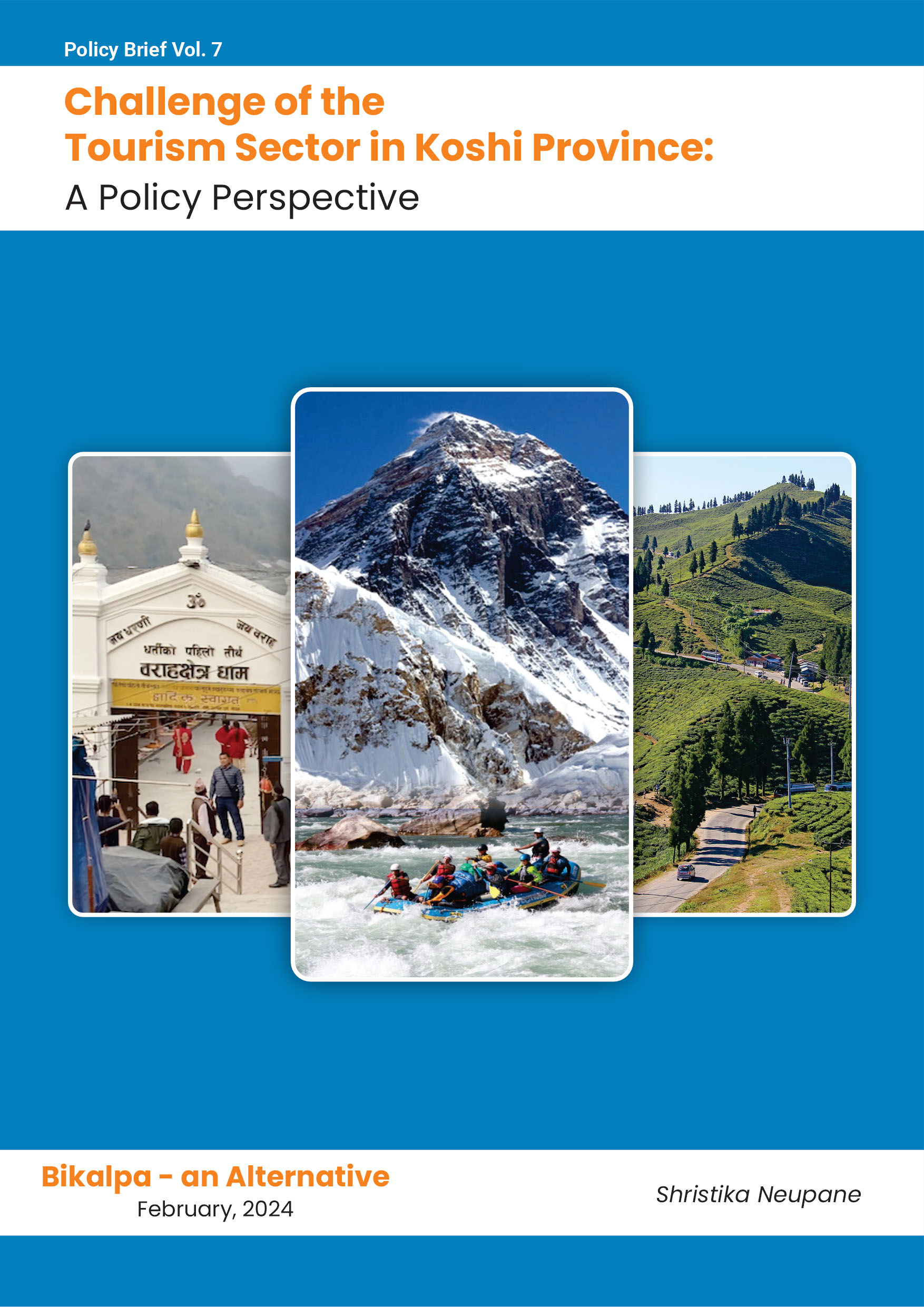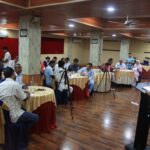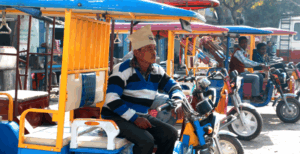On May 14, 2025, Bikalpa – an Alternative hosted a high-level stakeholder dialogue at Hotel Shree Krishna in Biratnagar, bringing together a diverse group of voices from the public, private, and development sectors of Koshi Province. The event focused on a critical policy innovation—the establishment of a One Stop Service Center (OSSC) in the province. With participation from provincial legislators, municipal and government officials, business leaders, and civil society representatives, the dialogue served as a vital forum to deliberate on how Koshi Province can pioneer effective service delivery through OSSC and address long-standing administrative inefficiencies.
The event began with a warm welcome and stakeholder introductions led by Mr. Basanta Adhikari from Bikalpa. A short but impactful video presentation followed, providing an overview of OSSC—its origin, objectives, benefits, and relevance. The video highlighted examples from neighboring countries that have successfully implemented such centers to streamline services for businesses and citizens alike. It also cast a critical eye on Nepal’s current status, citing the inefficacy of the federal OSSC, which presents Koshi Province with a unique opportunity to lead by example.

Following the video, there was a 10-minute presentation by Mr. Samir Chhetri, who provided a concise yet comprehensive overview of the OSSC model. His presentation addressed key questions including “Why OSSC for Koshi Province now?”, the potential benefits of establishing such a center, and the legal and policy frameworks required for effective implementation. By mapping the institutional gaps and presenting global and regional best practices, Mr. Chhetri offered a strategic lens through which the province could move forward. With the stage set, the floor was then opened for broader stakeholder discussion and input.

Key Insights from the Dialogue
Dr. Mohan Subedi, Economic Advisor to the Chief Minister of Koshi Province, delivered the keynote address. Emphasizing the need to “go digital,” he reminded stakeholders that the foundation for OSSC is already embedded in provincial acts and regulations. Dr. Subedi traced the concept back to 2075 B.S., underscoring that the Koshi Province government has already expressed formal commitment to this initiative during a recent investment summit.
He stressed that the implementation should ensure clear jurisdiction across all three tiers of government to avoid service overlap. Delegation of authority, he said, must be strategically considered. “There must be a shift in mindset among all stakeholders. Only then can we ensure efficient delivery,” he noted. He also highlighted the government’s upcoming policy and program documents to accelerate service delivery. With over NPR 200 billion worth of MOUs signed, he pointed out that the next step is execution, especially through Public-Private Partnership (PPP) models to support struggling enterprises.
Mr. Bishnu Kafle, BDS Lead at DAI Global UK/Udaya Project, focused on the operational challenges. While the concept of OSSC has been discussed extensively, implementation remains stuck in a “no man’s land” due to poor coordination. He identified digital data collection as a major bottleneck. According to him, data should be categorized into mandatory, basic, and sector-specific, with streamlined digital protocols across departments. The real challenge, he emphasized, lies in achieving inter-departmental coordination.
Mr. Chudamani Bhattarai, Director General of the Morang Chamber of Industries, offered a candid critique of the federal OSSC, which he said lacked a functional physical setup and responsiveness. “We cannot continue to fool citizens by claiming services are digitized when they are not,” he said. With increased investor interest following the provincial investment summit, he called for a dedicated OSSC unit within Koshi Province that eliminates the need to travel to Kathmandu. “We need concrete incentives and practical support structures here in the province,” he stressed.
Mr. Chetan Niraula, President of the Federation of Small and Cottage Industries Morang, echoed similar concerns. He spoke passionately about the frustration among entrepreneurs forced to visit multiple departments, often submitting the same documents repeatedly. This bureaucratic delay, he argued, discourages risk-taking and keeps capital idle. Niraula advocated for provincial control over processes like trademark registration and called for a pilot study to refine OSSC implementation before scaling up.
Honorable Ramdev Yadav, Chairperson of the Provincial Committee on Industry, Tourism, and Environment, delivered closing remarks. He acknowledged the broader context in which OSSC is being pursued: “We are still at the infancy of digitalization and federalism—barely seven years in.” He emphasized the need for continued commitment, especially from senior leaders, to overcome resistance to intergovernmental coordination and establish clarity in the roles of federal, provincial, and local governments. He reminded participants of the Prime Minister’s past commitments to Koshi Province, signaling that momentum is building.
The dialogue underscored that while the vision for an OSSC is clear, the road to implementation is riddled with structural, procedural, and coordination-related challenges. However, the sense of urgency and collective willingness expressed at the event provided a hopeful glimpse into what is possible when stakeholders come together.
As Bikalpa continues to facilitate these critical conversations, it is clear that Koshi Province stands at a turning point. By leveraging policy readiness, investor interest, and public demand, the province has a rare opportunity to become a national example of efficient, citizen-centric governance. Implementing a functional OSSC will not only reduce bureaucratic delays but also create a more conducive environment for entrepreneurship, investment, and inclusive growth.












